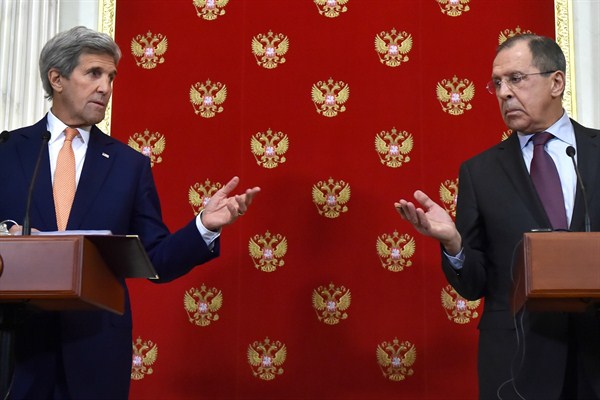Since assuming power in 1999, Russian President Vladimir Putin has used rising income from gas and oil exports not only to rebuild the Russian military from its post-Soviet nadir, but also to spur the evolution of new tactics and capabilities blending cyberwar, support to proxy forces, special operations and conventional operations. Like Washington, Moscow recognized that the primary security threat in the opening decades of the 21st century was not major conventional war but a complex web of state weakness, political extremism, terrorism, insurgency and transnational crime. Russia’s military interventions in Georgia, Ukraine, Syria and elsewhere demonstrate that Putin has honed Russia’s arsenal of weapons and is willing to use them.
The roots of this story go back even further, though, to the end of World War II. Despite the massive destruction and death the Soviet Union suffered in the war, Josef Stalin saw opportunity in its aftermath. The old global order that had kept the Soviet Union and before it Imperial Russia in check had been destroyed. This, Stalin and his henchmen believed, provided an opening to advance Soviet power in ways never seen before.
Stalin’s first inclination was to use the Soviet Union’s massive conventional military power to intimidate and control weaker nations. But there was a problem with this plan: the United States. While the United States had demobilized after the war, it still had massive air and sea power and, most importantly, nuclear weapons. So Stalin developed an alternative: use the Soviet Union’s connections with communist or socialist organizations around the world to exploit local grievances fueled by colonialism, inequity, corruption, repression and ethnic or racial tension, in order to empower revolutionary movements. Rather than a big and very costly Soviet offensive through Europe, the West would die the death of a thousand small cuts as it lost its friends in the Third World and access to vital resources. Thus what became known as “limited war” took on increased strategic significance, playing a major role in the post-war global security system, breaking up old empires, creating new nations, and providing a tableau for proxy conflict between the Eastern and Western blocs.

